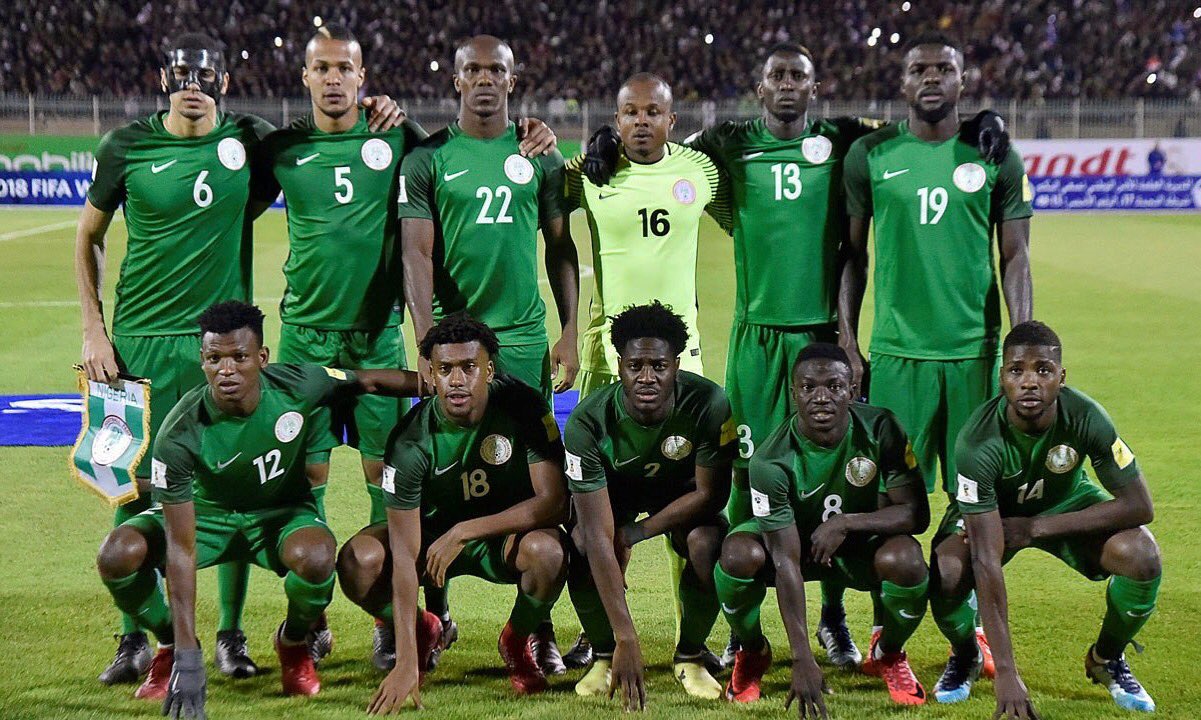Angry reactions have trailed the current FIFA Rankings which placed Nigeria as 50th in the world despite a 4-2 win over Argentina which was supposed to fetch them points to move up.
Fans of the Super Eagles were hoping there team will move up from it’s 45th position after the win, but their expectations were dashed when Nigeria rather dropped to 50th in the world.
An explanation as to how the rankings was conducted by the World Soccer governing body was provided by one of their media representative after a mail from respected Nigerian journalist Kunle Solaja of Sportsvillagesquare.com.
Here is the explanation as reported on the website.
In exchange of communication involving eleven different e-mails in 2013, FIFA explained exclusively to Solaja Sports Village Square’s editor -in-chief, why Nigeria dropped in ranking despite a win in competitive match and draw and lone goal loss in friendly encounters.
Giovanni Marti of the FIFA Media Department was the first to respond, providing two documents and giving a web link for further clarification.
He asserted that FIFA was not calculating the ‘results and rankings on a hypothetical basis’.
The documents provided are Fact Sheets and frequently asked questions on the ranking. Giovanni explained that the ranking is not based solely on current results, but older results have impact on recent scores.
“It’s simply an accumulated depreciation over the past years…meaning that as some matches grew older, they are devalued according to a calculating scheme.
He backed up the claims with the score sheet of Nigeria’s matches since 2010.
After his response, other FIFA staff members – Nicolas Maingot and Matthias Kunz also joined in providing documents to back up the ranking.
The first set of match log sent was questionable. Nigeria’s matches carried wrong dates and were three years older than schedule.
For instance, Nigeria’s 1-0 defeat of Benin played on January 16, 2010 was captured as having been played on January 15, 2006. All matches of 2010 were captured as 2006 and a day earlier than actual
Those of 2011 were similarly captured as those of 2007 and so on. Considering that age is an important factor on current ranking, it is envisaged that it could have had negative impact on Nigeria’s total point haul.
Match results are depreciated according to age. A team’s total number of points over a four-year period is determined by adding the average number of points gained from matches during the past 12 months; and the average number of points gained from matches older than 12 months depreciates yearly.
Matches played four years ago are discounted to have 20% value. Those older than four years have zero value as they are deleted. Match average from Year 3 have a 30% value while those of last year have 50% value and the ones of the current year carry full value of 100%.
It was explained that four years, covering one World Cup cycle, are taken into account in calculating the ranking.
When the issue of wrong dates were brought up, Giovanni Monday sent another e-mail with another log for Nigeria explaining that his colleagues from the Ranking unit gave him another version as in the earlier one, the dates slipped in the excel-list when programming.
“But now my colleagues remark that everything has been controlled and everything is correct. There are no effects on the current points that Nigeria have”.
In other words, only matches played since January 2010 are taken into account in the November 2013 ranking as some earlier matches which reflected in October and September 2013 have waned off.
For instance, in the September 2013 ranking, the earliest match that featured was the 1-0 defeat of Mozambique in a 2010 World Cup qualifying series played on October 11, 2009.
Employing the 12-month cycle, the match was wiped off in the October 2013 ranking which began with the 3-2 away win against Kenya on November 14, 2009.
In the ranking released in October 2013, a Nigeria’s 3-2 away win in Kenya had been wiped off as it could not make the four-year calendar cycle. The calculation thus began with Nigeria’s 3-1 loss to Egypt in one of the opening matches of the Angola 2010 Africa Cup of Nations.
In that match, Nigeria had zero point. So, while the September rankings took into consideration 17 games played in 2010 for instance, the matches had reduced to 16 in the November ranking.
The calculation for November 2013 thus run: In a cycle spanning from the 3-1 loss to Egypt in January 10, 2010, to the 1-0 loss to Guinea in Conakry on October 10, 2010, Nigeria played 16 matches and obtaining 5,567.68 points the average of which comes to 348 points.
But when the points are discounted at 20% according to the four year cycle the matches have passed through, they come to a discounted value of 69.6 points.
If the explanations offered by FIFA four years ago were to be taken now, it means matches that Nigeria had played as at November 2014 had been wiped off.
A new cycle began with the 0-1 loss of Nigeria’s home based Eagles to the 2015 Africa Nations Cup –bound Cote d’Ivoire. The match was played in Abu Dhabi on January 15, 2015.
It was followed up two days later with a Nigerian 2-0 defeat of Yemen. The third match that must have been taken into account was the 0-1 loss to Uganda in Uyo in a match organized to mark Vincent Enyeama’s 100th cap.
With the calculations that FIFA is employing, it might take another decade before Nigeria breaks into the top 20 in the monthly ranking

